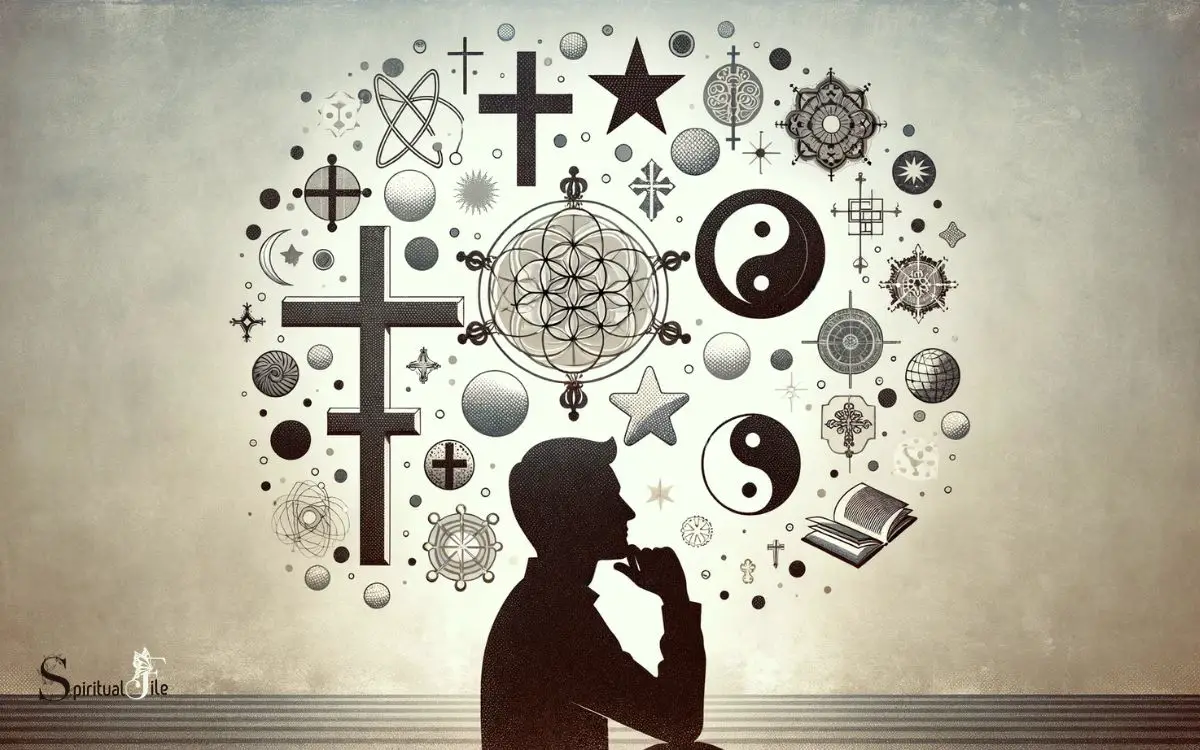Spiritual Marriage Vs Legal Marriage: Personal Beliefs!
Spiritual and legal marriages are two distinctive forms of union recognized in various cultures.
A spiritual marriage refers to a union based on religious or personal beliefs without legal recognition, while a legal marriage is a civil contract recognized by the government that offers legal rights and obligations.
Spiritual Marriage:
- Not legally binding.
- Focuses on the couple’s emotional and spiritual connection.
- May involve religious rituals or personal ceremonies.
- Does not provide legal benefits or rights.
Legal Marriage:
- Recognized by the state or country.
- Provides legal rights and responsibilities to the couple.
- Can involve a civil or religious ceremony.
- Offers benefits such as tax advantages, inheritance rights, and decision-making authority.
For example, a couple may choose to have a spiritual marriage ceremony on a beach, embracing their personal beliefs without filing a marriage license, while another couple may have a courthouse wedding to ensure their union is legally recognized.

Key Takeaway
4 Aspects: Spiritual Marriage Vs Legal Marriage
| Aspect | Spiritual Marriage | Legal Marriage |
|---|---|---|
| Basis | Faith, values, and beliefs | Legal contract recognized by the state |
| Ceremony | Often religious or symbolic | Formal legal proceedings |
| Focus | Spiritual and emotional bond | Legal rights and obligations |
| Recognition | Religious or spiritual communities | Government and society |
Historical Origins

The historical origins of spiritual and legal marriage can be traced back to ancient civilizations. Spiritual marriage, rooted in religious and cultural traditions, was often recognized through ceremonies conducted by religious leaders.
These ceremonies symbolized the union of two individuals in the eyes of their community and deities.
On the other hand, legal marriage emerged as a means of establishing property rights, inheritance, and social status within societies. It was often governed and recognized by secular authorities to regulate familial and economic matters.
Over time, these two forms of marriage evolved separately, with spiritual marriage focusing on the emotional and spiritual bond, and legal marriage emphasizing contractual and legal obligations.
Understanding the historical foundations of these two types of marriage provides insight into their differing purposes and significance in various societies.
This historical context sets the stage for exploring the ceremonial differences between spiritual and legal marriage.
Ceremonial Differences

The ceremonial differences between spiritual and legal marriage are distinct and have evolved over time to reflect the differing purposes and significance of each type of marriage in various societies.
Spiritual marriages often involve religious or cultural rituals that symbolize a deep spiritual and emotional connection between the partners. These ceremonies may vary widely, from elaborate traditional customs to simple, intimate gatherings.
On the other hand, legal marriage ceremonies are typically focused on the formalization of the union in the eyes of the law, often involving legal documentation, witnesses, and specific legal requirements.
These ceremonies are designed to ensure the legal rights and responsibilities of the partners. Understanding these ceremonial differences is crucial in comprehending the unique nature and implications of each type of marriage.
Legal Implications

The legal implications of marriage encompass a range of factors, including tax benefits, financial responsibilities, and rights.
Understanding the legal aspects of marriage is crucial for couples as it directly impacts their financial and legal standing.
In the following points, we will explore the tax benefits of legal marriage and the financial responsibilities and rights that come with it.
Tax Benefits of Legal Marriage
Numerous tax benefits are associated with legal marriage, offering couples significant financial advantages and legal implications.
Here are four key tax benefits of legal marriage:
- Filing Jointly: Married couples can file joint tax returns, potentially lowering their overall tax burden.
- Deductions and Credits: Marriage provides access to various deductions and credits, such as the child tax credit and education-related deductions.
- Estate Tax Exemption: Spouses can inherit assets from each other without incurring estate taxes, providing substantial financial protection.
- Health Insurance Premiums: Married couples may enjoy lower health insurance premiums through employer-sponsored plans.
These benefits highlight the tangible advantages of legal marriage in terms of tax implications. Understanding these benefits is crucial for comprehending the financial responsibilities and rights that come with legal marriage.
Financial Responsibilities and Rights
Navigating financial responsibilities and rights in legal marriage requires careful consideration and understanding of the associated legal implications.
When entering into a legal marriage, it’s crucial for both partners to comprehend their financial obligations and entitlements.
The table below outlines some key financial aspects to consider in legal marriage.
| Financial Responsibilities | Legal Implications |
|---|---|
| Shared expenses | Joint liability for debts and obligations |
| Income and asset ownership | Community property laws |
| Tax filing and liabilities | Joint filing and potential tax benefits |
| Financial support obligations | Spousal and child support responsibilities |
Understanding these legal implications is essential for making informed decisions and ensuring financial stability within a legal marriage.
Cultural Significance

In terms of cultural significance, spiritual marriage and legal marriage both hold distinct and deeply rooted meanings within various societies around the world.
The cultural significance of these marital forms is influenced by historical, religious, and societal factors.
Here are four key points to consider:
- Historical Traditions: Spiritual marriage may be deeply intertwined with cultural rituals and traditions that have been passed down through generations.
- Religious Beliefs: Legal marriage may hold cultural significance due to its alignment with religious beliefs and practices, shaping societal norms and values.
- Social Acceptance: The cultural significance of both forms of marriage can be influenced by societal acceptance and the role of marriage within community structures.
- Gender Roles: Cultural significance may also be evident in the roles and expectations placed on individuals within the context of spiritual and legal marriages.
Personal Beliefs

When considering the topic of spiritual marriage versus legal marriage, understanding personal beliefs is essential.
It involves recognizing the significance of spiritual connections in a marriage, while also acknowledging the legal rights and responsibilities that come with a legal marriage.
Moreover, it entails respecting individual perspectives and faith traditions in the context of marriage.
Spiritual Connection Importance
The spiritual connection’s importance in marriage is often influenced by personal beliefs and values.
When considering the significance of spiritual connection in marriage, individuals may take into account the following:
- Personal Fulfillment: Many believe that a strong spiritual connection in marriage contributes to personal fulfillment and emotional well-being.
- Shared Values: A spiritual connection can provide a foundation for shared values and beliefs, fostering a sense of unity and understanding between partners.
- Emotional Intimacy: For some, spiritual connection deepens emotional intimacy and strengthens the bond between spouses.
- Conflict Resolution: A shared spiritual connection may facilitate conflict resolution and provide a framework for navigating challenges within the marriage.
Understanding the impact of spiritual connection on marriage is crucial when considering the holistic nature of marital relationships. This understanding paves the way for a discussion on the subsequent section about ‘legal rights consideration’.
Legal Rights Consideration
How does one’s personal beliefs influence the consideration of legal rights in the context of spiritual marriage versus legal marriage?
Personal beliefs play a significant role in shaping an individual’s perspective on legal rights within the context of marriage.
For those who prioritize spiritual marriage, their personal beliefs may lead them to place greater emphasis on the spiritual and emotional aspects of the union rather than the legal rights associated with it.
On the other hand, individuals who value legal marriage may view it as a means to secure specific rights and protections within the legal system.
Understanding the impact of personal beliefs on legal rights consideration is crucial in navigating the complexities of spiritual and legal marriage arrangements.
This understanding will be further explored in the subsequent section, which delves into individual faith perspectives.
Individual Faith Perspectives
In considering the impact of personal beliefs on legal rights within the context of spiritual and legal marriage, it is essential to delve into individual faith perspectives.
Understanding how individual beliefs intersect with the legal and spiritual aspects of marriage is crucial in navigating the complexities of this topic.
Here are four key points to consider:
- Diverse Belief Systems: People come from various religious and spiritual backgrounds, each influencing their perspectives on marriage.
- Interpretation of Commitment: Different faiths may have varying views on the nature of commitment within a marriage, affecting legal and spiritual considerations.
- Gender Roles and Equality: Beliefs about gender roles and equality within marriage can significantly impact legal rights and spiritual fulfillment.
- Cultural Influences: Cultural traditions and customs often intertwine with faith, shaping perspectives on marriage and its legal implications.
Understanding these individual faith perspectives is crucial for comprehending the intricate dynamics between spiritual and legal marriage.
Relationship Dynamics

Spiritual marriage differs from legal marriage in the way in which partners relate to each other and to their shared values and beliefs.
In a spiritual marriage, the relationship dynamics are often centered around a deep emotional and spiritual connection.
Partners in a spiritual marriage may prioritize mutual respect, empathy, and understanding, valuing the growth and well-being of each other’s souls.
Communication is typically open and honest, with an emphasis on spiritual growth and shared beliefs.
On the other hand, legal marriage often focuses on the practical aspects of a partnership, such as legal rights and responsibilities.
While emotional and spiritual connections can still be present in legal marriages, the primary focus may be on legal and financial matters, potentially affecting the relationship dynamics in a different way.
Social Acceptance

Socially, spiritual marriages are often regarded with greater reverence and respect than legal marriages, as they emphasize the emotional and spiritual connection between partners more frequently than legal marriages do.
When it comes to social acceptance, spiritual marriages tend to have the following attributes:
- Spiritual marriages are often seen as a union of souls, transcending the materialistic aspects of a legal marriage.
- They are often celebrated within the couple’s spiritual or religious community, garnering support and validation.
- Spiritual marriages are perceived as more enduring and rooted in shared values, adding to their social acceptance.
- They are often viewed as a deeper commitment and bond, leading to greater acceptance and recognition from family, friends, and society at large.
Considering these aspects of social acceptance, it’s essential to delve into the future considerations surrounding spiritual and legal marriages.
Future Considerations

When considering the future implications of spiritual and legal marriages, it is important to analyze the potential impact on legal rights and obligations.
It’s crucial to understand the differences in rights and obligations that arise from these two types of marriages.
Below is a comparison table to illustrate the future considerations in spiritual and legal marriages:
| Considerations | Spiritual Marriage | Legal Marriage |
|---|---|---|
| Legal Rights | Limited legal recognition | Full legal recognition |
| Financial Obligations | Variable and dependent on | Clear and defined financial |
| individual circumstances | obligations | |
| Inheritance Rights | May require additional legal | Automatically entitled to |
| documentation for inheritance | inheritance rights |
This table provides a clear visual representation of the future considerations regarding legal rights and financial obligations in both spiritual and legal marriages.
How Does Spiritual Partnership Differ from Legal Marriage in Terms of Personal Beliefs?
Spiritual partnership and marriage differ significantly in terms of personal beliefs. While marriage is a legal and social contract, spiritual partnership is more about a deep spiritual connection and shared values. In a spiritual partnership, the focus is on personal growth, spiritual alignment, and emotional support, rather than legal obligations.
FAQ About Spiritual Marriage Vs Legal Marriage
Can a Spiritual Marriage Be Recognized as Legally Binding in the Eyes of the Law?
Recognition of a spiritual marriage as legally binding depends on the laws of the specific jurisdiction.
Factors such as intent, consent, and compliance with legal requirements may influence the legal recognition of a spiritual marriage.
How Do Cultural Differences Impact the Understanding and Practice of Spiritual Marriage?
Cultural differences significantly impact the understanding and practice of spiritual marriage.
According to a Pew Research Center survey, 71% of Americans believe that shared religious beliefs are important for a successful marriage, highlighting the influence of culture on marital perceptions.
What Are the Potential Future Implications for Couples Who Choose a Spiritual Marriage Over a Legal One?
Choosing a spiritual marriage over a legal one may impact issues such as property rights, inheritance, and healthcare decision-making.
Future implications could involve legal disputes, financial insecurity, and limited access to certain benefits and protections.
How Do Personal Beliefs About Marriage Impact the Decision to Enter Into a Spiritual Marriage?
Personal beliefs about marriage can profoundly influence the decision to enter into a spiritual union.
These beliefs encompass cultural, religious, and philosophical perspectives, shaping one’s understanding of commitment, love, and partnership. Such convictions underpin the foundation of a spiritually grounded marriage.
What Are Some Common Relationship Dynamics That May Differ Between Spiritual and Legal Marriages?
Common relationship dynamics that may differ between spiritual and legal marriages include decision-making processes, conflict resolution methods, and the role of traditional gender norms.
These dynamics can be influenced by cultural, religious, and personal beliefs.
Conclusion
The comparison between spiritual marriage and legal marriage reveals a complex interplay of historical, cultural, and personal factors.
Like two intertwining rivers, these two forms of union flow together, each contributing to the overall landscape of human relationships.
While legal marriage provides structure and protection, spiritual marriage offers a deeper connection to shared beliefs and values.
Both forms have their own significance and impact on individuals and society at large.






